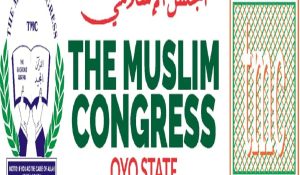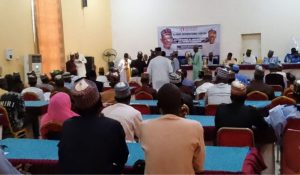
The Rights of Domestic Air Travellers
CSR REPORTERS notes from this outset that airlines are expected to operate within established rules and regulations, ensuring the rights of passengers are respected. However, it remains baffling why domestic airlines in the country struggle to provide basic refreshment to passengers during prolonged delays. Even more troubling is their reluctance to refund passengers promptly when flights are significantly delayed or canceled. In cases where refunds are eventually issued, the process is often long and arduous, with airlines deducting various charges from already in-built fees. Meanwhile, in more advanced jurisdictions, airlines are required to offer cash refunds automatically for significant delays or cancellations, even if passengers do not explicitly request them. That domestic airlines uniformly exhibit these practices points to a systemic issue in the industry.
We support the Nigeria Civil Aviation Authority’s (NCAA) recent admonition of domestic airlines over their hesitation to refund passengers who could not travel as scheduled. The NCAA insists that airlines must comply with the Nigeria Civil Aviation Regulation (NCAR) 2023 as amended, particularly the provisions designed to safeguard passenger rights. According to the NCAA, tickets purchased in cash must be refunded immediately, while electronic payments—via mobile apps or internet banking—must be refunded within 14 days. This clear directive is a step in the right direction.
The NCAA’s intervention is especially timely during the holiday season when many Nigerians will be traveling for Christmas. Domestic airlines have long subjected passengers to frequent delays and cancellations, treating their customers with indifference. Travelers often face uncertainty about whether their flights will depart as scheduled or even take off at all. Such unpredictability disrupts business plans, personal appointments, and other engagements, creating widespread frustration and inconvenience. This longstanding issue must no longer be tolerated.
To be fair, some delays are unavoidable, particularly those caused by adverse weather conditions. In such instances, airlines cannot be held responsible. However, a significant portion of delays and cancellations occur without any justifiable explanation, leading to suspicions of deliberate overbooking to maximize profits. Additionally, the infamous “VIP movement”—where flight operations are delayed to accommodate certain privileged individuals—further exacerbates the problem. This practice, which has become increasingly frequent, undermines the travel experience for ordinary passengers and must be addressed by the relevant authorities.
Another contributor to delays is the poor infrastructure at Nigerian airports. The insufficient number of X-ray machines at security checkpoints causes long queues, especially during peak travel periods. Ideally, screening a passenger should take no more than 30 seconds. However, in Nigeria, the process can take up to two minutes or more, often due to inefficiency or extortion by screening officials. This bottleneck not only frustrates passengers but also poses challenges for airlines attempting to maintain timely operations.
In light of these challenges, the NCAA has pledged to strictly enforce existing regulations. Airlines that fail to meet their responsibilities toward passengers, including adhering to refund policies, will face sanctions. This enforcement is a welcome development and sends a clear message that passenger rights are not negotiable.
Passengers also have a role to play in asserting their rights. The NCAA must guide travelers on the processes for requesting refunds and educate them about their entitlements. Airlines’ use of underhanded tactics to deny refunds is unacceptable and must be met with stern action. Deploying clear communication channels and awareness campaigns can empower passengers to demand accountability.
Furthermore, addressing the broader issues plaguing the aviation industry is essential. The Federal Government and relevant stakeholders must invest in upgrading airport infrastructure to eliminate bottlenecks at security checkpoints. Transparency in flight scheduling and operations is also critical to restoring public trust. Airlines must be held to higher standards of customer service, including providing refreshments during delays and offering clear explanations for disruptions.
The authorities should also tackle the menace of “VIP movements,” which unfairly inconvenience the majority of passengers. Establishing strict protocols to minimize disruptions caused by such movements would ensure more equitable treatment of all travelers.
Ultimately, a thriving aviation industry relies on the trust and satisfaction of its customers. Domestic airlines must recognize that their passengers are not merely ticket buyers but stakeholders whose rights and experiences are integral to the sector’s success. The NCAA’s renewed focus on enforcing passenger rights is an encouraging step, but it must be complemented by systemic reforms to address the root causes of delays, cancellations, and poor service.
For the millions of Nigerians who depend on air travel for business, leisure, and family reunions, the current state of affairs is unsustainable. The rights of air travelers must be protected, and domestic airlines must operate with the professionalism and accountability expected of them. Only through a collaborative effort between regulators, airlines, and passengers can the domestic aviation industry fulfill its potential and provide a reliable, efficient, and respectful service to all.









